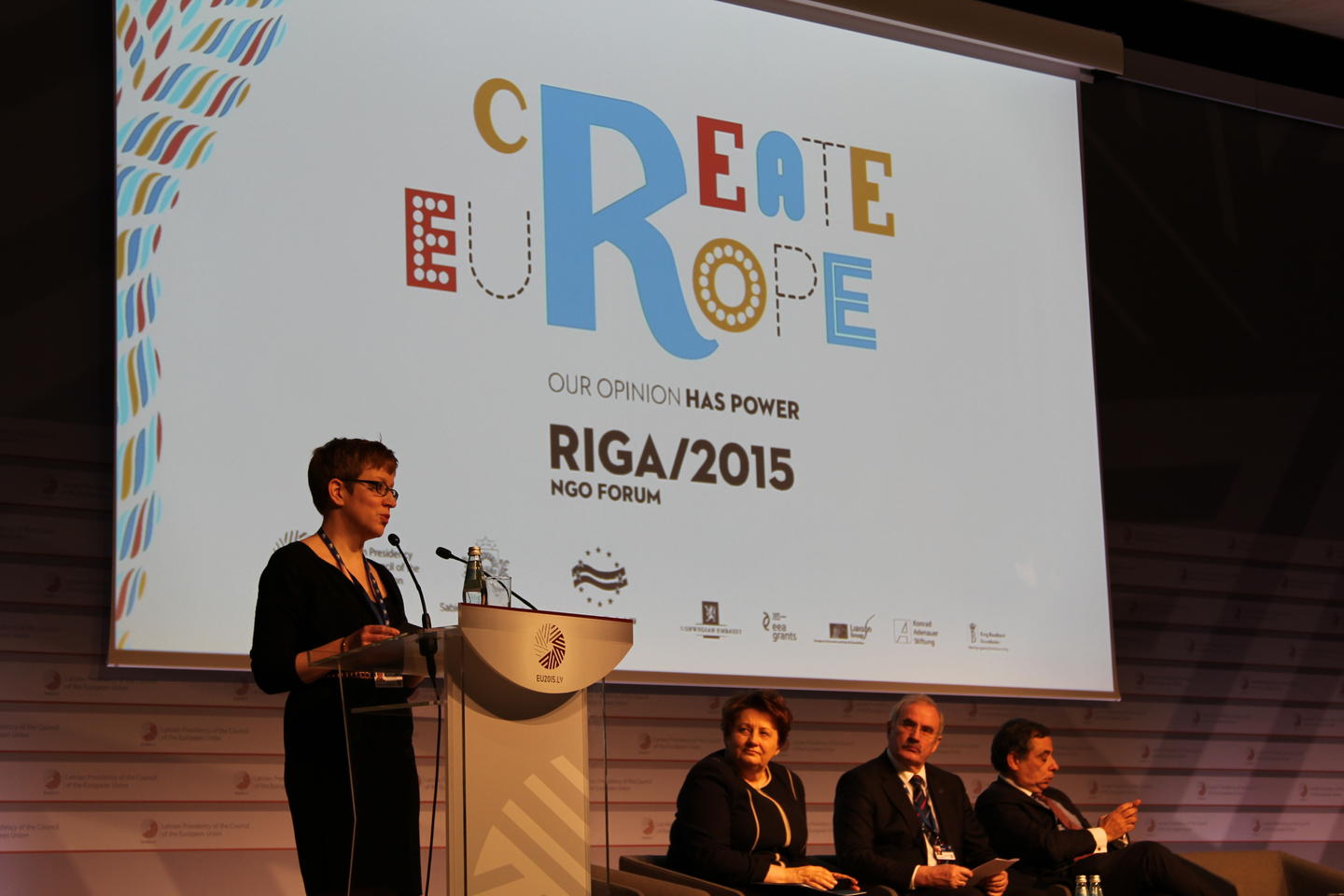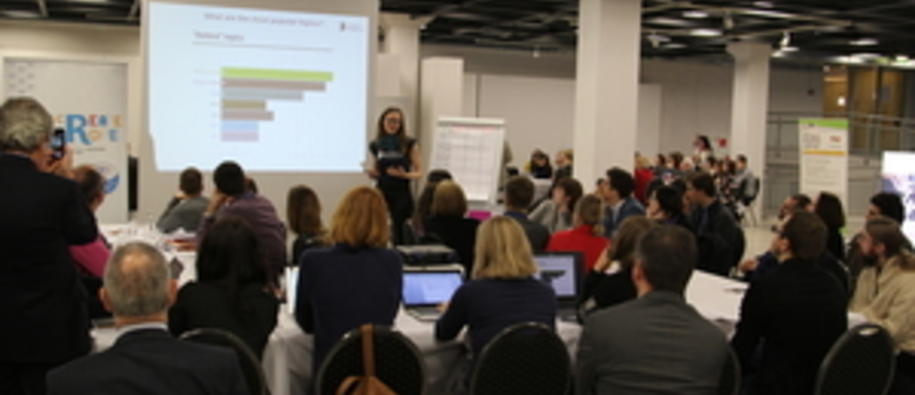“Cooperation between civil society and governments plays a crucial role in well-functioning democracies. The roadmap you agree on today forms the basis for strengthening the civil dialogue and the involvement of citizens in Europe in the EU decision-making processes,” said State Secretary at the Norwegian Ministry of Foreign Affairs, Ingvild Stub, in her address to the NGO Forum in Riga.
Around 300 representatives from civil society organisations across Europe participated in the NGO Forum in Riga, 2-3 March. This is the biggest gathering of civil society under the Latvian presidency of the EU. The conference was made possible with support from Iceland, Liechtenstein and Norway through the EEA Grants, and was organised by the Latvian NGO programme operator, Society Integration Foundation.
One of the speakers at the Forum was Ionut Sibian, director of the Civil Society Development Foundation, the operator managing the EEA Grants NGO programme in Romania. Sibian emphasised the vital role of civil society in defending democratic values, good governance and human rights in Europe, and highlighted the importance of the support provided by Iceland, Liechtenstein and Norway through the EEA Grants in enabling civil society to play that role.
The aim of the conference in Riga was to bring together NGOs, politicians, experts and public sector representatives to agree how to put parts of the EU’s Lisbon Treaty into practice. The Treaty states that citizens in the EU and their representative associations are to be heard and involved in the decision-making processes at local, national and EU levels.
More than five years after the Treaty entered into force, such direct involvement is still lacking in many areas. Decisions taken at EU level can have great influence on people’s daily life. Surveys show that EU citizens wish to be more involved and heard, and at least understand why decisions are made the way they are.
During its EU presidency this spring, Latvia made ‘engagement’ one of the three main priorities. Supported by civil society and coupled with Iceland, Liechtenstein and Norway’s longstanding support to civil society in Europe through the EEA Grants, it has resulted in a Riga process for more civic participation in the EU.
During the two-day Forum, participants shared best practice in promoting citizen participation in decision-making, from innovative digital tools, to new approaches to human rights, volunteerism and social inclusion.
After two days of workshops, presentations anddebate, including on social media, the participants agreed on a roadmap on how to strengthen the dialogue between citizens and decision-makers in the EU at all levels.
According to the roadmap the dialogue should be strengthened at three levels:
1) With representative associations and civil society in the Member States
2) With representative associations and civil society at EU level
3) Opportunities for citizens and representative associations to make known and publicly exchange views in all areas of Union action
Read the road map (will be provided shortly)
“The Commission will itself change its way of doing business. All Commissioners shall be active in the Member States and in dialogues with citizens, by representing and communicating our common agenda, listening to ideas and engaging with stakeholders,” said Vice President in the European Commission, Valdis Dombrovskis, at the conference. He underlined that the roadmap is a good resource for further reflection.

